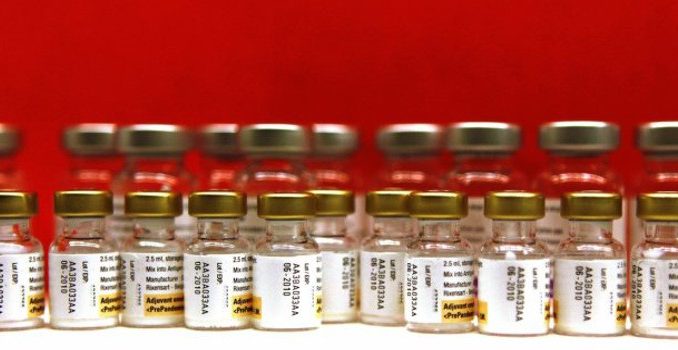
Vaccine recipients who have fallen ill after being vaccinated have successfully sued the government for over $3 billion dollars in recent years, according to CDC figures.
However, big pharma companies responsible for manufacturing the vaccines have been given a free pass by the government, who have promised not to hold them liable for deaths and injuries suffered by members of the public.

BYPASS THE CENSORS
Sign up to get unfiltered news delivered straight to your inbox.
You can unsubscribe any time. By subscribing you agree to our Terms of Use
Latest Video
Naturalblaze.com reports:
In 1988, largely due to vaccine makers lobbying the government to alleviate their responsibility, The National Vaccine Injury Compensation Program (NVICP) was established.
After an uptick in lawsuits in the late ’80s, the vaccine manufacturers essentially held the government hostage and threatened to stop making vaccines unless the government took on responsibility for vaccine injury lawsuits — and NVICP did just that.
You can actually prove that you or your child were harmed from a vaccine yet the vaccine maker is completely shielded from liability. Even if you are awarded monetary compensation through the NVICP, the taxpayers are put on the line, NOT the vaccine makers. This removal of liability has created the incentive to turn out new vaccines with very little testing, as the companies don’t have to worry about financial hardships for injuring people, which in turn has shaped the situation that we find ourselves in today. In the last 2 decades, we’ve witnessed a near 300% increase in the number of CDC recommended vaccines.
It is no question that the subject of vaccines is profoundly controversial. On both sides of the argument exist truths and lies that can hinder the ability of some to make rational decisions.
While we have everyone from attorneys to biologists, to political scientists who write for the Free Thought Project, none of us are doctors, so we do not make recommendations about what you and your family should do in regards to vaccination.
The Vaccine Adverse Event Reporting System (VAERS) receives around 30,000 reports annually, with 13% classified as serious (e.g., associated with disability, hospitalization, life-threatening illness or death) according to the CDC VAERS Master Search Tool.
Since its first year in action, NVICP has paid out $3,380,139,357.37 with $141,556,311.67 going to attorney’s fees, according to the latest report by the Health Resources and Service Administration. The last six years alone are responsible for 30 percent of all payouts, indicating a sharp increase in the amount of petitioner’s awards.
Since 1988, over 17,028 petitions have been filed with the VICP. Over that 27 year time period, 14,602 petitions have been adjudicated, with 4,687 of those determined to be compensable, while 9,915 were dismissed. Total compensation paid over the life of the program is approximately $3.3 billion, according to HRSA.
While vaccine injuries are particularly rare, the fact remains that they happen. Also, according to the CDC’s Advisory Committee on Immunization Practices (ACIP), the number of adverse reactions is underreported.
VAERS data are limited by underreporting and unknown sensitivity of the reporting system, making it difficult to compare adverse event rates following vaccination reported to VAERS with those from complications following natural disease.
Removing anyone or any company’s liability for their negligence has significant impacts on the way they will make decisions. Just like taxpayers are held responsible for police misconduct and nothing changes, when vaccine makers pass the buck to the taxpayer — again, nothing changes.
If a corporation does not have to assess the risks associated with negligence, then that corporation will be incentivized to ultimately foster carelessness — this cause and effect of negative incentive is basic economics.
The only way a vaccine maker can be held liable is if willful misconduct can be shown to have caused injury, meaning vaccine makers have to actually be caught knowingly causing harm. What this does is actually provides negative incentive to test a vaccine for safety, because if they are aware of problems before the vaccine is launched, then they could potentially be held liable instead of the taxpayers.


